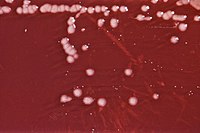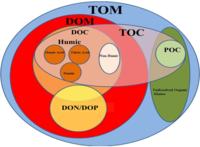
Optimized fluorescent proteins for the rhizosphere‐associated bacterium Bacillus mycoides with endophytic and biocontrol agent potential
Sign Up to like & getrecommendations! Published in 2018 at "Environmental Microbiology Reports"
DOI: 10.1111/1758-2229.12607
Abstract: Tracking of fluorescent protein (FP)-labelled rhizobacteria is a key prerequisite to gain insights into plant-bacteria interaction mechanisms. However, the performance of FPs mostly has to be optimized for the bacterial host and for the environment… read more here.
Keywords: bacterium; plant; biocontrol agent; fluorescent ... See more keywords

Rhizosphere‐associated Pseudomonas induce systemic resistance to herbivores at the cost of susceptibility to bacterial pathogens
Sign Up to like & getrecommendations! Published in 2018 at "Molecular Ecology"
DOI: 10.1111/mec.14400
Abstract: Plant‐associated soil microbes are important mediators of plant defence responses to diverse above‐ground pathogen and insect challengers. For example, closely related strains of beneficial rhizosphere Pseudomonas spp. can induce systemic resistance (ISR), systemic susceptibility (ISS)… read more here.
Keywords: associated pseudomonas; dc3000; pseudomonas spp; resistance ... See more keywords

The Sesamum indicum Rhizosphere Associated Bacterium: A Source of Antifungal Compound.
Sign Up to like & getrecommendations! Published in 2018 at "Current topics in medicinal chemistry"
DOI: 10.2174/1568026618666180206102140
Abstract: BACKGROUND The impact of fungal infections on human health has increased considerably within a past few decades. Although drugs with antifungal properties are available, but they are less effective and are associated with side effects.… read more here.
Keywords: associated bacterium; sesamum indicum; compound; indicum rhizosphere ... See more keywords

Rhizosphere-Associated Microbiomes of Rice (Oryza sativa L.) Under the Effect of Increased Nitrogen Fertilization
Sign Up to like & getrecommendations! Published in 2021 at "Frontiers in Microbiology"
DOI: 10.3389/fmicb.2021.730506
Abstract: Crops assemble and rely on rhizosphere-associated microbiomes for plant nutrition, which is crucial to their productivity. Historically, excessive nitrogen fertilization did not result in continuously increasing yields but rather caused environmental issues. A comprehensive understanding… read more here.
Keywords: fertilization; nitrogen fertilization; rhizosphere associated; increased nitrogen ... See more keywords